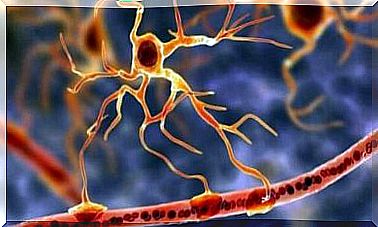Counseling Competence For Psychotherapy

Counseling skills are crucial for therapists. For this reason, psychologists and psychotherapists must implement them during their therapy sessions. They learn these just as they learn psychological techniques.
The concept of a therapeutic relationship originated in the psychodynamic model introduced by Bordin decades ago. It is an ingredient of significant change in any therapeutic model. This means that it must be present during the entire treatment if you want it to really work.
There are three components to a therapeutic relationship:
- The connection between a patient and their therapist, determined by emotional tone and mutual cooperation.
- In addition, the agreement is about the goals they are to achieve.
- The agreement on the tasks needed to achieve the said goals.
Some authors, such as Carl Rogers and his humanistic psychology, suggest that the ingredients that should be present in all therapies are:
- Authenticity and congruence.
- Unconditional acceptance of a patient and empathy towards them.
In fact, Rogers believed that these components are necessary for any change to take place. In addition to the essential alliance, other skills that are beneficial to the establishment of a therapeutic relationship are also necessary.
One of the most important counseling skills a therapist can have is the ability to establish a good connection or rapport with their patient.
Important counseling competence in therapists

To study the variables taken into account when using counseling skills, the study was conducted by Sloane and others in 1975 on the importance of patients to these variables and that they consider the reason for success to be mandatory :
- A therapist’s personality.
- Their ability to listen.
- A therapist’s way of gradually encouraging a patient to do what they think they cannot.
- Their ability to speak in a way a patient understands.
- The help they offer a patient so that they understand themselves.
Other skills
Other authors, such as Ackerman SJ and Hilsenroth MJ (2003), reviewed the publications on this topic and found that the characteristics of therapists who are most likely to promote a healthy alliance are:
- Flexibility. The way a therapist accepts and adapts his way of communicating with the situation and the patient in front of him.
- Experience. How they show clinical experience.
- Honesty. Does the patient think the therapist is sincere?
- Respect. Does the therapist respect the patient’s values and how they express and communicate them in general?
- Loyalty. The advisor is reliable.
- Self-confidence. The patient feels that they know what they are doing.
- The counselor shows interest in a patient and their problems.
- Attention. The professional is aware of what is happening in the session. That is, of the patient’s verbal and non-verbal manifestations.
- Proximity. A patient feels close to them.
- Heat. The therapist is kind and loving.
- Open minded. The therapist understands and accepts other views.
At the moment, you can conclude that there is ample information about the importance of a therapist’s characteristics in the results of a given treatment. Some studies indicate that the effectiveness of a treatment and session reduction is significantly greater when they put these strategies in place. The opposite happens when they do not.
What happens during therapy sessions?

Some studies reveal that the first session, when a patient and a therapist meet for the first time, is crucial for the majority of patients. Thus, patients who can hook patients in continuous treatment show greater verbal ease and diagnostic skills than the therapists with low hook.
If you isolate the factors outside of treatment, such as the financial opportunities of patients or the distance they need to travel to attend the session, most experts agree on two basic reasons that explain dropouts:
- On the one hand, the personal characteristics of a therapist and their lack of interest in the proposed intervention approach.
- On the other hand, the patient believes that they improved significantly enough to decide not to continue.
Regarding discontinuation, studies suggest that therapists’ verbal skills affect the ultimate success of a treatment, to the point that the number of dropouts is significantly lower in therapists who have them.
Conclusion on advisory competence
Therefore, and in light of the studies we mentioned, it is important that therapists learn useful skills in therapy. It is not enough to have good or comprehensive knowledge of their own field, but they must also know when to implement the knowledge, how to present it and how it can be changed from patient to patient. It is in this precision task that training helps a lot.









